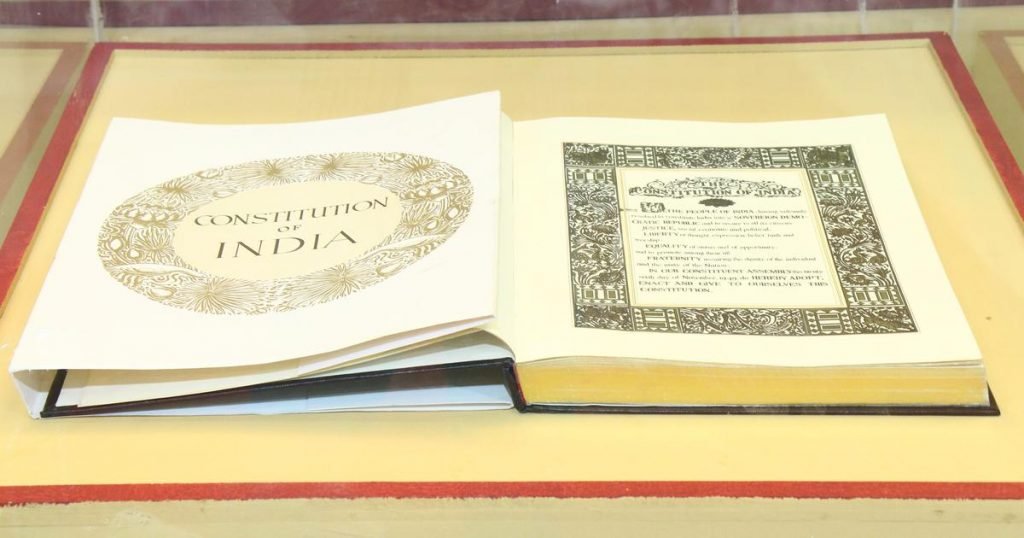Local body amendments and federalism in India

At the beginning of the 1990s, the implementation of dual policies of liberalisation and decentralisation was significant as the local bodies in their functioning reduced the role of the bureaucracy while increasing grass-root level participation with State’s support. A historic development took place in 1992, both in the Constitutional and federal history of India, by virtue of the 73rd and 74th Amendment Acts to the constitution. The 73rd Amendment Act and the 74th Amendment Act made the rural local bodies and the urban local bodies respectively a compulsory and statutory provision. It was also entrusted with powers and responsibilities ‘to enable them to function as institutions of self – government and such law may contain provisions for the devolution of powers and responsibilities. ‘Their main responsibilities are ‘the preparation of plans for economic development and social justice in the matters listed in Eleventh and Twelfth Schedules for the rural and urban local bodies respectively. Both these Schedules are broadly derivatives of the State list and these are meant to further refining the developmental and welfare functions of the State and in the process, federalism too. In this regard, the fact remains that decentralisation has often come to be regarded as a way of reducing the strength of governments and as synonymous with privatisation. In these Amendments total of 29 responsibilities have been given to rural local bodies and 18 to urban local bodies respectively.
Nature of Indian Constitution
The controversy of the nature of the Indian Constitution–federal or unitary is continuing to date. Asok Chanda in his book, Federalism in India, has expressed the view, ‘India is not a federal State. In the final analysis, it is a unitary State in concept and operation. These and similar other comments were consequent due to the fact that the Union government is heavily loaded with powers and functions than the States. In the present times, with the emphasis being laid on development administration, the Union assumes greater responsibility and plays a substantial role than the States. Many State subjects and areas of functions, like education, health, rural and urban development, social security, etc. are more determined by Union policies and funding. The approach paper of the Second Administrative Reforms Commission 2006, states, ‘paucity of resources at State level, need for standardisation of services, compulsions of reducing regional disparities, and the imperatives of meeting challenges of a growing economy in the modern world have necessarily enlarged the Union’s role in these sectors’. It illustrates the significance of the Union and the growing dependence of the States on the Union, in spite of having a gradual maturing of federal democracy in India.
In a statement, B.R. Ambedkar clarified the greater role of the Union, ‘though the country and the people may be divided into different States for convenience of administration, the country is one integrated whole, its people a single people living in a single imperium derived from a single source. The division of power among the units is, according to Ambedkar more than 3 of the division of labour than the distribution of power.

Effects on Federalism
India for the last decade and more is experiencing coalition politics and both the Centre and many states are being governed by a coalition of different political parties. The earlier phenomenon of ‘one-party system’ or rather ‘one-party dominant system’ has been eroding to coalition system. Political parties or alliance of political parties are playing divergent roles in the Union-State governance. A Party, which is ruling the State, is in the opposition at Centre and vice-versa. ‘This has made the spectacle of monolithic party organisations a thing of the past. Different segments of the same party are both cooperating and opposing the government of the day and this has thrown such a challenge to traditional thinking in regard to federalism that the President, the Prime Minister and the Chief Ministers are vying with each other in their expressions of mutual co-operation and smooth running of Union – State relations’. The time is ripe now with almost every major political party realising by sheer experience and because of objective conditions – the need to establish a true federal system that would strengthen the bonds of mutual cooperation, unity, and cordiality between the Centre and the States.
Challenges of federalism
The honest and practical way ahead is for the Union to lose its extra weight and shed its tendency to be the centre with a monopoly of power to dominate over the units and the people. In short, the only way to preserve ‘India, that is Bharat’ as a ‘Union of States’ is to work for building it as a ‘federal Union’ with multiple tiers of government and sharing of powers from the lowest grassroots levels of Panchayats to the Parliament and the Government of the Union. When the basic units of the federal Union at the grassroots become small and autonomous, most of the conflicts related to ethnicity and quest for freedom may get resolved and it may be possible to involve various groups in governance more closely and this may make the Union stronger and the nation more integrated, emotionally and culturally.

Above all, it needs to be remembered that only the spirit of ‘cooperative federalism’ and not an attitude of dominance or superiority – can preserve the balance between the Union and the States and promote the good of the people. Under our constitutional system, no single entity can claim superiority. Sovereignty does not lie in any one institution or in any one wing of the government. The power of governance is distributed in several organs and institutions for good governance. Thus the element of cooperation, of seeking friendly counsel with each other and of ever keeping the larger end in view, is of paramount importance.


















